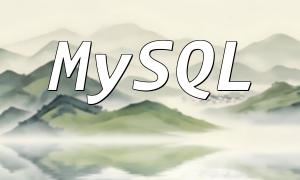In modern game development, creating a stable and efficient in-game economy system is essential. It supports the storage and circulation of virtual items and currencies, and manages core player-to-player transactions. PHP, as a prominent backend language, combined with frameworks like Laravel, offers powerful tools to accomplish this.
When developing an economy system, three critical areas must be addressed: reliable data storage, secure transactions, and scalability.
Persistent data management is fundamental for economy systems. MYSQL is a common choice due to its structured schema, flexibility, and performance, making it ideal for storing user accounts, balances, and transaction histories.
Transaction security is crucial to prevent data breaches and fraud. Techniques like encryption and salted hashing are widely used. PHP frameworks such as Laravel provide built-in features for encryption, authentication, and CSRF protection, making secure implementation straightforward.
As user bases grow, the economy system must handle increasing transaction volumes. PHP frameworks can be integrated with distributed architectures and cloud services to ensure reliable performance under heavy loads.
Laravel’s clear model-controller structure makes it ideal for managing user balances and transaction logic. Here's a simplified example of how to implement a basic in-game transaction system:
// Define User model
class User extends Model {
public function balance() {
return $this->hasOne('App\Models\Balance');
}
}
// Define Balance model
class Balance extends Model {
protected $fillable = ['user_id', 'amount'];
}
// Define Transaction Controller
class TransactionController extends Controller {
public function create(Request $request) {
$sender = User::find($request->sender_id);
$receiver = User::find($request->receiver_id);
if ($sender->balance->amount < $request->amount) {
return response()->json(['error' => 'Insufficient funds'], 400);
}
// Perform transfer
$sender->balance->decrement('amount', $request->amount);
$receiver->balance->increment('amount', $request->amount);
return response()->json([
'success' => true,
'balance' => $sender->fresh()->balance
]);
}
}By leveraging the tools and capabilities provided by PHP frameworks, developers can build in-game economy systems that are secure, scalable, and easy to maintain. Whether for indie projects or large-scale multiplayer games, PHP offers the flexibility and power needed to manage complex transaction systems efficiently.









